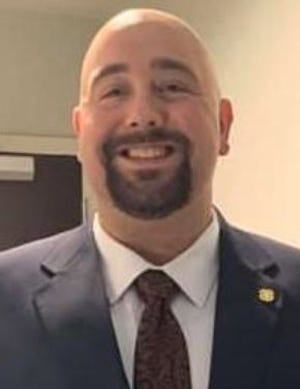Environmental education can be a very broad topic. The study of how living organisms interact within their environment can be very complicated, especially when we factor in the human element. An Okaloosa County 4-H program called Wildlife Outdoor Leadership Focus (W.O.L.F.) was created to address the human dimension of natural resources.
Basically, this is a youth conservation program dedicated to making participants aware of the importance of natural resources recreation, and to apply the art and science of natural resource management. W.O.L.F. has three main objectives.
Objective 1 Learn the Importance of Natural Resources

The W.O.L.F. program starts by explaining why these natural resources are important. For example, outdoor activities such as hunting, fishing, boating and wildlife viewing contribute over $25 billion to the state of Florida. People are very passionate about their outdoor activities. Florida hunters average nearly $3,000 per person on hunting expenditures per year! Our state has a vast stakeholder interest. Nearly 6 million people participate in wildlife/fisheries activities every year in Florida. The L in W.O.L.F. stands for leadership. Local, state, and federal leaders make important decisions every year regarding natural resource management. Teddy Roosevelt, our 26th President of the United States, established 230 million acres of public land for all to enjoy. Government still protects many of our natural resources today. Florida is home to 175 state parks.
Objective 2 Apply Theory and Practice Conservation
W.O.L.F. participants receive hands-on practice of being a conservationist. The program teaches 4-H members the science and art behind wildlife management. Florida 4-H has a virtual Wildlife Outdoor Leadership Focus (W.O.L.F.) Day Camp were youth can learn at their own pace. The camp has five sections: Woods and Fields, Freshwater, Saltwater, Survival, and Biologist life. Each day has videos and activities that offer up a daily challenge. W.O.L.F. campers learn about wildlife/plant identification, and what specific wildlife species need to survive. Furthermore, we show youth how our actions, intentional or unintentional, affect the environment we live in. the virtual day camp also covers basic biology of mammals, birds, fish, and reptile. Participants are encouraged to go out with adult supervision and see what’s going on in the great outdoors.

The final activity is the wildlife challenge where campers must be a wildlife biologist for a day. 4-H members are given a scenario with three wildlife species that the landowner wants to manage for on a piece of property. The camper must evaluate the property based on the requirements that the three wildlife species need in order to survive. The camper completes a wildlife management plan. They look at the best management practices given to them during the course and decide if the property is habitat for the desired wildlife species. If it is not, they must offer a solution. For example, the landowner wishes to have more northern bobwhite quail on the property, but the land is covered in mature hardwoods. The campers are expected to make a recommendation. They learned that quail need shrubs, native grasses, and forbs.
Objective 3 Career Development and Multi-Science Approach
The W.O.L.F. program is also intended to spark awareness about the professionals who work with our natural resources. Participants virtually meet biologists, wildlife officers, and other natural resource professionals. Each career video will explain how they help our environment. Campers will get to see what it would be like if they had their jobs. The program does not just stop with wildlife and fisheries science careers. The program explains many more sciences. 4-H members will learn about soil science, forestry, engineering, math, agriculture, and technology to name a few. The only thing your youth will need is a love for the outdoors. If you are interested in W.O.L.F. Camp please reach out to your local 4-H Agent. The W.O.L.F. Program will also be available as a virtual project In Okaloosa.
Ronnie Cowan is the 4-H Director at the University of Florida's Institute of Food and Agricultural Sciences Extension office in Crestview.
This article originally appeared on Crestview News Bulletin: EXTENSION CONNECTION: WOLF program provides outdoor education, leadership
